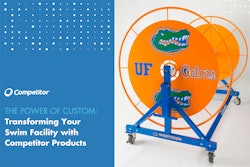
Last summer, ten members of NC State’s 1983 ‘Cardiac Pack’ filed a lawsuit against the NCAA for use of the players’ name, image and likeness. Just over a year after the initial filing, a North Carolina judge has dismissed the lawsuit.
According to Fox Sports, the Cardiac Pack requested “reasonable compensation” for the use of their images that have been ubiquitous with March Madness since the team’s legendary victory over the University of Houston over 40 years ago.
Related: N.C. State’s 1983 Men’s Basketball Team Sues NCAA Over Name, Image and Likeness
The plaintiffs argued that the NCAA had profited from video footage of the Cardiac Pack’s victory, using it in advertisements and on the organization’s website.
The lawsuit said, “For more than 40 years, the NCAA and its co-conspirators have systematically and intentionally misappropriated the Cardiac Pack’s publicity rights — including their names, images, and likenesses — associated with that game and that play, reaping scores of millions of dollars from the Cardiac Pack’s legendary victory.”
The NCAA requested that the case be dismissed, citing a four-year statute of limitations on antitrust claims and a three-year statute of limitations on claims of invasion of privacy. Attorneys for the NCAA claimed “the Copyright Act holds higher legal authority than the cases used in their arguments.”
"North Carolina State University's (‘NC State’) 1983 NCAA men's basketball championship team have sued the NCAA for using without permission their names, images and likenesses contained in copyrighted game footage from that season," Superior Court Judge Mark A. Davis wrote in a 44-page order released Thursday. "Because their claims are untimely, barred by their failure to allege a violation of a legally enforceable right, and preempted by the federal Copyright Act, dismissal of this action in its entirety is appropriate."
Lawyers representing the Cardiac Pack told The News & Observer, “This case has always been about standing up for young athletes and shining a spotlight on the NCAA’s abusive practices and continued profiteering off of its historical wrongs. The court has ruled that legal technicalities prevent the NCAA from being held to account in court. Despite the fact that the NCAA stole these players’ rights when they were kids and continues to profit off those stolen rights today, the victims have no justice and no remedy.”





































